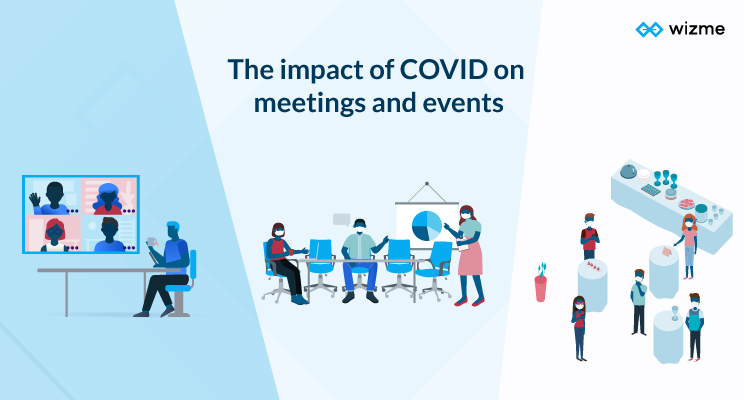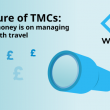2020! The year that COVID-19 hit the economy and our working lives, with far-reaching consequences for business travel, meetings, and corporate events. Let’s face it! Times have been dire as we have continued to see corporates, agencies and venues all suffer as a result of reduced activity levels and reduced volumes. Cost savings have had to be engineered and have sadly led to significant redundancies across UK businesses. The awful loss of incredible talent and experience in meetings and travel will significantly impact the future management of meetings and events.
According to the HBAA, the UK business events, accommodation and meetings sector is worth £31.2 billion. It’s taken a long time for the Government to recognise the impact COVID-19 has had on our industry sector. And, even now that meetings up to 30 can happen — with business events and conferences given the go-ahead from 1st October — industry associations suggest that the meetings and group accommodation market will not fully recover for at least 24 months. With this slow movement in mind, I foresee an enormous shift in the emphasis on, and profiling of, meetings of the future.
During the lockdown, senior leaders in corporate organizations will have seen and experienced first-hand the benefits of working from home. We have seen in recent months the accelerated adoption of meeting technologies, Zoom, Teams etc. which has boosted business productivity and the wellbeing of their employees with an increased work-life balance. Most business leaders will have seen seismic shockwaves in profitability. But many will have noted the significant spend reduction in business travel and meetings resulting from limited demand during the lockdown work-from-home period. One can expect a close eye and much scrutiny on managing that demand and future travel and meetings in the short term as organizations look to balance the books.
Will the meetings sector survive?
The Government announced that people can return to work from 1st August if the workplace is COVID safe. But do people want to return? A survey carried out for Bright Horizons revealed that just 13% want to go back to pre-pandemic ways of working, with most people saying they would prefer to spend a maximum of three days in the office. Almost one in four believe that a more flexible working life would have a positive impact on them and, by extension, their employers. In addition to this, we must consider that many employees may remain nervous about a return to pre-COVID-19 norms.
However, I firmly believe that the demand for meetings will come back! There is an urgency for UK business to restart, and this will require people to meet face-to-face again — I know I am missing the human interaction and engagement. Strategic priorities mean the demand will be a staggered:
- It will begin with smaller planning meetings as business leaders regroup to set out a strategy for a post-COVID-19 economy.
- Then will come the need for bigger communication and engagement events where business leaders can share this strategy with employees, customers, and partners.
- During the next phase, larger groups will meet to plan the strategy execution.
- The above will lead to training and development to ensure that employees are well-equipped to deliver the strategy.
Who’s going to get there first?
Will some venue types benefit more than others? Hotels are likely to be the first type of venues in use, considering their scale, infrastructure, stability, and resources. But it is still a matter of venues’ COVID-19 readiness, and who is still operating. Space will be business-critical, and venues with the capacities for the new social distancing measures in place will provide confidence to their clients. Many industry accreditations support a fast COVID recovery. We’re already seeing venues sign up to these — a clear sign that they are making the necessary changes to make meetings and events safe.
After months of working remotely, there will be a demand for team building but not as we know it. Venues with outside space will allow for more creative, social distanced events. And when it comes to looking at how delegates will travel to meetings, delegates and policies may dictate avoiding public transport wherever possible. Therefore, country houses might prosper over the city center locations as people start to change the mindset of how and where they meet.
For venues to succeed, they may have to reconsider reshaping their offering to be attractive financially, but still in keeping with meeting expectations. Selling on the value of safety and COVID readiness confidence should be a key consideration. Do not underestimate the delegate resistance to attend such meetings and the level of reassurance they will need. With so much uncertainty around potential local lockdowns, venues who will thrive will be those who offer flexible cancellation policies. This will give confidence in people booking if they know the venue will work with them to reduce risk.
What about events?
So, we know meetings have restarted — and venues, intermediaries and corporates are all working together to make this work. But what about events? Would I predict timescales on when we might see some of the national expos and large-scale events? To plan effectively, these will be early next year. The 2021 considerations for communication skills will be around virtual conferencing, physical space, and technology to create inclusiveness while retaining the safety and comfort controls of social distancing.
Where do I see the major challenges in the reopening of events?
With so many different types of events, from training, award dinners, exhibitions, company conferences — the challenge will be, how to make these safe? The way organisers manage awards dinners will significantly differ from how the past and will take into consideration alcohol and how this affects social distancing. The confidence people have in attending large-scale events will be a slow return, so venues that specialise in these may have to consider their proposition. What more can they offer to build this confidence that — in return — helps build their revenues back up?
What about International events? Here it’s a matter of delegate confidence and their willingness to take the risk with international travel and attendance. Until we can see more stability in other countries, there will much more of a focus on the domestic agenda for events with people avoiding international travel with so much uncertainty around quarantining.
The event itself is only one of the risks. Organisers need to consider how delegates travel to the venue, the fact their meeting people outside of social bubbles and service provider actions on cleanliness. Much needs to be done to reassure and grow confidence. It’s at that point we can expect confidence in investing in the larger meetings return.
Who are the winners?
There is a tsunami of change predicted post-COVID-19. The industry winners will be those that see meetings as an integral control component to deliver safety, spend management and travel demand. For venues, they will be technology-enabled, allowing for the use of hybrid multi-site connectivity. To minimise risk to delegates, tangible actions such as temperature checks will become natural and part of the new norm for meetings and events. It’s about creating an environment where employees won’t be reticent to want to travel and meet on company business.
Organisations need to embrace different ways of thinking, consider why people need to meet face-to-face and, put this into policy and practice. It is a significant change, needing education, the right tools, and intelligent solutions.
Are you ready for that change?
We are!
#meetingsandevents #weareevents
#eventsindustry #meetingsindustry #meetingtech
#meetingplanners #eventplanner #covid19 #covidrecovery #MeetingsWizard









